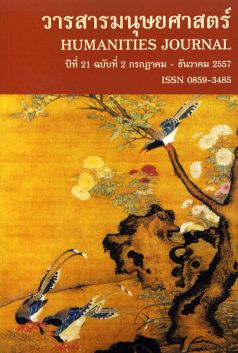ประเพณีส่วงเฮือชายฝั่งลุ่มน้ำโขง: บทบาทดั้งเดิมและการปรับเปลี่ยนตามนโยบายของรัฐชาติ
Main Article Content
Abstract
ประเพณีส่วงเฮือ (แข่งเรือ) ของชุมชนชายฝั่งลุ่มน้ำโขงเป็นประเพณีโบราณที่ปฏิบัติสืบทอดกันมาตามฮีตสิบสองของอาณาจักรล้างช้าง เดิมมีบทบามสำคัญในการเฉลิมฉลองความอุดมสมบูรณ์ของชุมชนหลังฤดูกาลเก็บเกี่ยว ต่อมารัฐบาลไทยได้ใช้ประเพณีดังกล่าวเชื่อมความสัมพันธ์ระหว่างประเทศไทยกับประเทศสาธารณรัฐประชาธิปไตยประชาชนลาว ตลอดจนการตอบสนองนโยบายการส่งเสริมการท่องเที่ยวของประเทศเพื่อเป็นการเพิ่มรายได้ให้แก่ชุมชน ภาครัฐและเอกชนอีกด้วย
The “Suang Huea” Tradition of the Mekong Riverine Communities: The Traditional Role and the Adaptation to Accommodate the Thai Government’s Policy
Panupong Udomsilp
“Suang Huea” is the old tradition practiced among the Mekong Riverine communities since ancient times, in accordance with the Lan Chang’s Hit Sip Song. Traditionally, it was performed to celebrate the abundant harvest of the community after the harvest season. Now it has been adapted by the Thai government as a means to foster good
relation between Thailand and Lao People’s Democratic Republic. Additionally, it has been promoted to serve the Thai governments policy of tourism promotion in order to generate more income for the local people, thereby increasing revenues of the country.


